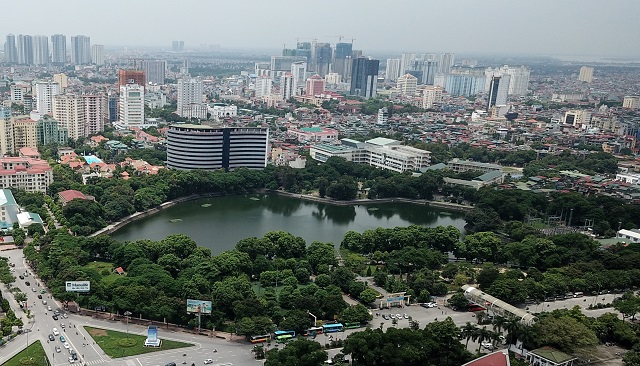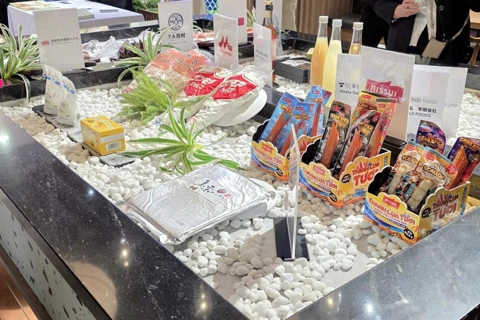Circular economy helps Vietnam tackle climate change: Minister
Vietnam will focus on eliminating waste and pollution, keeping products and materials in use, and regenerating the natural system.
Vietnam will promote the circular economy to protect the environment from climate change, helping enterprises achieve greater efficiency in the management of natural resources.
| Overview of the online conference. Photo: Hai Yen |
Minister of Natural Resources and Environment Tran Hong Ha stressed the view in an online conference discussing measures to unlock the potential for green recovery in developing Asia on June 2.
The event, jointly held by the Ministry of Natural Resources and Environment (MoNRE), the Asian Development Bank (ADB), and the Finish Innovation Fund SITRA, is part of a series of events celebrating World Environment Day [June 5] and initiating the UN Decade on Ecosystem Restoration 2021-2030.
“A circular economy would help create motivation for investment, technological innovation, reduction of production cost, supply chain expansion, create new markets and job opportunities,” said Ha, adding that all of these results are to ensure a better world.
According to the minister, the current Covid-19 pandemic has had comprehensive impacts on global socio-economic lives, leading to changes in people awareness and raising the urgent needs for transforming existing growth models towards sustainable development.
“Circular economy has already been included in Vietnam’s Law on Environmental Protection,” Ha stressed. He added that the main objective for Vietnam in shifting from a linear economy to a circular one is to focus on three principles of eliminating waste and pollution, keeping products and materials in use, and regenerating the natural system.
Among key measures to adopt the circular economy, Ha said Vietnam would give priority to designing products and creating technology to make products with minimum use of raw materials, as well as removing waste and polluted substances from the supply chains, starting from design, production, distribution, consumption to collection and recycling.
“As scientists around the world identify design to be the key process for 80% of waste created throughout economic activities, this is the field that Vietnam expects to focus on,” Ha stated.
“We will expand the lifespan of products and materials in the economy via the 9R strategy [Refuse, Rethink, Reduce, Reuse, Repair, Refurbish, Remanufacture, Repurpose, Recycle and Recover],” he continued.
| Nghia Do park in Hanoi. Photo: Pham Hung |
In a circular economy, Vietnam would not only target to reduce the exploitation of raw materials and natural resources, but also look at how to foster the recovery of the natural ecosystem, Ha stressed.
At the event, experts noted Covid-19 recovery efforts in developing economies in Asia could follow a traditional growth strategy that relies on carbon- and resource-intensive production.
By contrast, the pursuit of a green recovery could deliver growth built on resource efficiency and business innovation that promotes transition to a circular economy. This will require innovative policymaking, prompting government officials to consider new examples and ideas.
“The current take-make-waste extractive industrial model has had far-reaching negative implications for the global climate, scarce natural resources, and biodiversity. Revised economic models could help transform consumption and make it more sustainable,” stated the ADB. In a circular economy, production and consumption encompass sharing, leasing, reusing, repairing, refurbishing, and recycling materials and products as long as possible, extending product life cycles and keeping materials within the economy wherever possible. |













